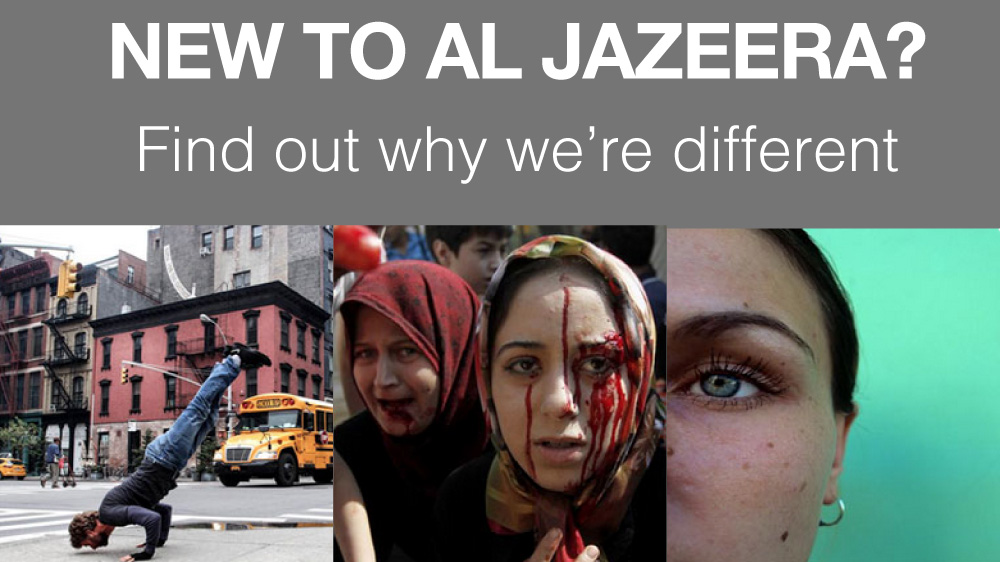Should the PA share responsibility for settler attacks?
Security coordination between Israelis and Palestinians is one-sided, primarily benefitting Israel, critics say.

Duma, occupied West Bank – As the villagers of Duma gathered for the funeral of Saad Dawabsheh, who was killed in a suspected hate crime carried out by Israeli settlers, their shock and grief was temporarily replaced by anger and defiance.
Young men waved flags and called for a protest after the service. Groups of women united in familiar chants, seeking revenge on the killers.
But away from the bravado of the crowds, some Palestinians in Duma spoke of the fear surrounding the village in the wake of the recent arson attack.
“I don’t feel safe,” Saad’s mother, Rehab Zaid, told Al Jazeera. “Even the children are yelling and screaming all the time, ‘The settlers are coming to burn us!’ We don’t feel safe at all. We hope for a country that would protect us from those criminals, those murderers.”
![Mourners carried the body of Saad Dawabsheh during his funeral in the village of Duma [Reuters]](/wp-content/uploads/2015/08/151d946232ed4bc18a7b1718ed1f947b_18.jpeg)
Fearful of another attack on the village of some 3,000 Palestinians, residents have volunteered to start unarmed night patrols around the outskirts of Duma. The Fatah political party, which dominates the PA in the West Bank, encouraged Palestinians to form such groups to protect themselves against future settler attacks.
“It can only be done in an unofficial way; it can’t be done by the Palestinian Authority’s security forces,” said Ghassan Khatib, a political analyst at Birzeit University. “Those people cannot be armed and the settlers are armed. This is the only possibility that people can think of, given the circumstances.
“But I don’t think it is going to be enough to deter the settlers, who are vicious and armed to the teeth,” he added.
RELATED: West Bank arson attack: ‘My heart is burned’
The bitter reality for many Palestinians is that their own security services cannot protect them in their homes. The increasingly intense attacks by Israeli settlers on Palestinians and their property over the past two years have laid bare the limits of the PA security services’ power.
Despite the geographic limitations to its reach, the Palestinian security sector has grown over the past decade faster than any other sector of the PA. As of October 2014, it employed 44 percent of all civil servants in the Palestinian Authority. In 2013, it absorbed almost $1bn, or a little over a quarter, of the PA’s annual budget.
Since the PA has full control of security in Area A, where according to the Oslo agreement, the Israeli forces have no jurisdiction, the two sides have established a controversial system of coordination. At Israel’s request, the PA’s security forces have arrested suspected Palestinian fighters, or political activists affiliated with political opposition parties like Hamas.
The nature of the PA’s work has come under increased scrutiny in recent days, as critics argue that it does not protect Palestinians, but instead works to protect Israeli interests, effectively subcontracting the occupation from Israel.
The aftermath of the Duma attack shows the imbalance in the relationship between the two parties. More than a week after the deadly arson attack on the Dawabsheh home, where Israel has full jurisdiction, there have yet to be any charges laid in relation to the case.
RELATED: Israelis protest hate crimes in wake of baby’s death
Haneen Zoabi, a Palestinian member of the Israeli Knesset, told Al Jazeera that the relationship was one-sided and that the PA should end its security collaboration with Israel.
“The PA, just a few hours after Ali [Dawabsheh] was killed in Duma, started contact with Israel in order to control the anger of the people, in order to prevent a reaction,” Zoabi told Al Jazeera. “This is not how the oppressed should react. This is not how a liberation movement should react.
“We should stop, immediately, the security coordination,” she said. “We cannot imagine that the Israelis are killing us and we are coordinating with them on how to control the anger of our people, how to control the political resistance of our people. We cannot accept that.”

Khatib told Al Jazeera that security cooperation served the common interests of Israelis and Palestinians and had reduced the likelihood that violence would break out. “The return to a situation similar to the second Intifada is neither good for Israelis nor Palestinians,” he said.
But political analyst Alaa Tartir, programme director at Al-Shabaka – the Palestinian Policy Network, warned that the PA’s security coordination with Israel offered no benefits to Palestinian residents, even in communities with historic links to armed resistance against the Israeli military occupation.
“This is a myth,” he said. “There is no benefit whatsoever, neither for the Palestinian people nor for the struggle for liberation and self-determination, through security collaboration.
“Simply put, this collaboration is between the occupied and the occupier and there’s a huge gap between the powers of both sides,” Tartir told Al Jazeera. “It’s a surreal obligation for an occupied people to protect the security of the occupier.”